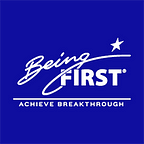The Coronavirus and Human Evolution
How the Coronavirus can accelerate our human evolution to help us see solutions for this pandemic and all our social and environmental challenges.
By: Dr. Dean Anderson
Human evolution is a fascinating study that is particularly relevant to how to solve the coronavirus pandemic.
In its simplest form, evolution goes like this. A challenge arises in the environment that is beyond our capability to meet it. We respond with trial and error until we figure out a solution or suffer the consequences. In the effort, we learn and grow. Then a bigger challenge arises. We figure out how to meet it and again learn and grow. Rinse and repeat until we face a challenge we cannot meet. Then…we perish.
As a species, we have been in this evolutionary process for 200,000 years. So far, as a collective, we’ve been successful and have met the challenges we have faced, and have grown in the process. We have evolved. But have we evolved fast enough?
Is coronavirus the challenge that will cause us collectively to perish? Doubtful. We’ll handle this, not without tremendous suffering, but we’ll get through it.
But how about our other risks to humanity’s future like climate change, or nuclear catastrophe, or another, even more powerful virus? Or other challenges like terrorism, poverty, pollution, feeding the under-privileged, crime and homelessness? Maybe this Covid-19 battle can teach us a thing or two about how to handle all our social and environmental challenges.
I believe it can. I also believe that the evolutionary purpose of Covid-19 is to do just that, to wake us up — collectively — to how we must evolve to create a world that works for all. This pandemic is yet another practice run in the journey of our human evolution, albeit at a grander scale. While each 21st Century challenge we face is unique and different, all possess a similar solution — evolve our consciousness so we can see the solutions that will deliver a socially and environmentally healthy and just world.
A peek into how evolution works will provide some insight.
Evolution has a central causative factor — our mindsets. With each evolutionary step, our worldview grows and expands. Our mindsets get bigger and more inclusive. We acquire broader systems and process view, seeing further across both space (systems) and time (process).
From a systems perspective, we see greater complexity, more parts and more wholes, inter-dependencies previously invisible, leverage points, and the impacts of local actions on distant locations. From a process view, we see further across time. We more clearly see how history got us here and the trajectory of trends into the future. We become better able to course-correct and adjust to non-linear, emerging dynamics. We see delayed impacts of today’s actions before they actually manifest. These two ways of seeing are crucial to conquering Coronavirus!
As we evolve, we also see more deeply into the human condition, into the nature of our own self and others. We become more mindful, more consciously aware of our interior, including our mindsets, emotions and assumptions. We learn to manage our fears and how to step beyond them to see more clearly the nature of whatever is before us. We become interested in and supportive of how others think and feel. We inquire more, listen and connect more. We become more cooperative and operate with more exceptional teamwork. We become able to work together across boundaries of differences to co-create solutions to complex challenges that would have previously caused our demise.
In short, as we evolve, we see more, feel more, include more perspectives. That’s a good thing because, with complex challenges, no one of us has the solution. The challenges are more massive than any one of us. We need each other’s perspectives.
Solutions emerge out of our dialogue, out of the speaking and listening to each other’s ideas, out of the shared openness and collective attentiveness to the deeper aspects of our Beings. When we drop into a deeper sense of Presence and connection to ourselves and each other beyond our ego’s need to be right, we can sense and feel what is true and useful. We openly inquire, share and listen to each other, and out of that space emerges from our collective wisdom insights and solutions. We achieve breakthroughs.
The coronavirus is demanding this of us. It is serving evolution by putting this challenge before us. So far, as a collective, we have been failing. But let that not be the final score. Instead, let us expand our mindsets, think more strategically, plan ahead for all contingencies, repurpose our resources, work better together across boundaries and connect more deeply to our internal wisdom.
Let us evolve together and solve this challenge, and learn from this Coronavirus pandemic so we can answer all our pressing social and environmental challenges. This is the opportunity before us. Let it accelerate our human evolution by not letting solutions hide unseen behind our fear, worry and old mindsets.
Here are some free resources to help get you started:
WEBINAR: Vertical Leadership Development: The Answer to Today’s Organizational and Social Challenges
WEBINAR: How to Manage Your Inner State for High Performance
ABOUT THE AUTHOR
Dr. Dean Anderson, Co-Founder, and CEO of Being First, Inc., is an international speaker and bestselling author with over 40 years of experience in developing executives of Fortune 1000 companies, government agencies, and large non-profit organizations to transform themselves, their organizations, communities, and cultures. His expertise includes developing and equipping leaders to design and implement transformational change, deliver breakthrough results, increase organizational change capacity, and establish high performing, co-creative cultures that unleash human potential. View additional free webinars at BeingFirst.com/webinars.
